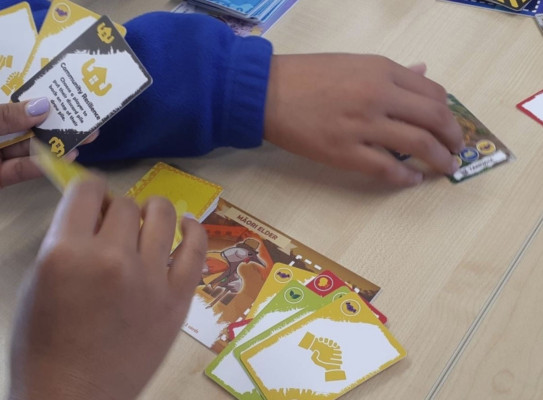Transferring Gaming and Learning to the Real World

The Beneath the Waves program has demonstrated interest in using serious educational games for volcanic tsunami risk communication.
A recent publication entitled 'Transfer of Learning in Analogue, Digital and Hybrid Games(external link)' by Lukosch and Freese (2025) provides an in-depth analysis of how different forms of games—analogue, digital, and hybrid—facilitate learning and contribute to the transfer of knowledge and skills to real-world applications. The chapter explores how games promote learning through active participation and encourage reflection, particularly during the debriefing phases. During these reflection periods, players can connect their in-game experiences with real-world scenarios, drawing conclusions and insights that may lead to "aha" moments, where abstract concepts or strategies become clear and applicable.
The authors also highlight that different types of games—analogue (physical, board games), digital (video games), and hybrid (a combination of both) have varying impacts on learning outcomes. For example, analog games often foster social interaction and cooperative problem-solving, while digital games can offer immersive environments and instant feedback. Hybrid games, combining elements from both formats, create unique opportunities for interaction and learning, though they may also present challenges related to technology integration and player accessibility.
Throughout the chapter, the authors provide several practical examples to illustrate how various games have successfully facilitated learning transfer, emphasizing strategies that can be employed to support this process. They conclude by offering recommendations for game designers and users, such as ensuring that games are designed with clear learning objectives, providing opportunities for reflection and discussion, and adapting the game format to suit the specific needs of different learner groups.
Ultimately, the authors argue that by understanding the unique strengths and challenges of analog, digital, and hybrid games, educators and game designers can better leverage these formats to create engaging, practical learning experiences that lead to meaningful knowledge transfer to real-world contexts.